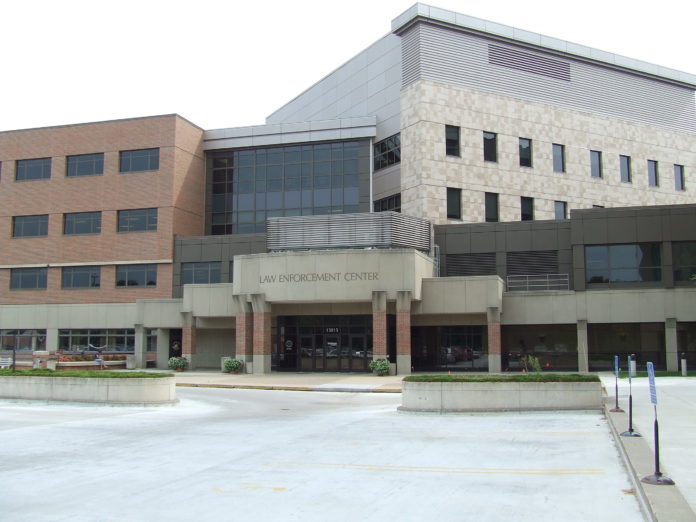
Last Tuesday, in the United States House Appropriations Committee, an amendment was added to a bill funding the Department of Homeland Security that would bar U.S. sanctuary cities from receiving any federal grant money, including from the State Criminal Alien Assistance Program, (SCAAP.) Rep Kevin Yoder, R-Kansas, offered the measure. Rep Duncan Hunter, R-California, has also re-introduced legislation, that he initially offered in 2011, which would revoke SCAAP funding from state and local governments with sanctuary policies. Minnesota’s two largest cities of Minneapolis and St. Paul, as well as the city of Austin, have separation ordinances whereby local law enforcement cannot verify immigration status and city resources can’t be used to detect or apprehend undocumented immigrants.
SCAPP falls under the U.S. Department of Justice, and reimburses states for costs associated with incarceration of undocumented criminal aliens. The program is administered by the Bureau of Justice Assistance (BJA) in conjunction with U.S. Immigration and Customs Enforcement, (ICE) which falls under the Department of Homeland security. The funds can only be used for correctional purposes for inmates convicted of a felony or second misdemeanor, being housed in a correctional facility for four or more consecutive days during the reporting period. A formula that includes a total salary figure for correctional officers is used to determine the reimbursement. ICE runs the inmate data submitted through its databases to confirm one of three categories 1. inmates positively identified as criminal aliens, 2. inmates where alien status is unknown, and 3. inmates positively identified as non- criminal aliens. SCAPP reimburses for category 1 and some amount for category 2 inmates “whose eligibility cannot be determined through positive identification or ‘match,’ but have valid foreign countries of birth.”
In 2014, twenty-four different corrections facilities across Minnesota applied for reimbursement. Out of a total capacity of 14,581 beds, a total of 2,903 unique inmate records were submitted by state and counties for reimbursement. SCAPP found a total of 1,349 eligible criminal aliens, 528 criminals with unknown immigration status, and another 1,026 ineligible for reimbursement. Minnesota correctional facilities were reimbursed a total of $1,166,140. Much like the federal Medicaid and Medicare programs, federal reimbursement fails to cover the actual costs to the state to provide services. The cost to incarcerate one inmate for a year in Minnesota was $41,364 in 2012, 29% higher than other states, per the National Institute of Corrections.
See breakdown of Minnesota correctional facilities’ SCAAP reimbursement requests by clicking here. You can pull past reports and reports from other states here.
Due to the fact that prisoners can be held for as few as four days and still qualify for reimbursement, it’s not possible to derive from SCAAP numbers the total number of criminal aliens currently sitting in Minnesota correctional facilities. Alpha News contacted the Minnesota Department of Corrections to inquire about the number of illegal immigrants in their facilities and according to the agency, there are 377 offenders currently in custody who have a detainer placed on them from U.S. Immigration and Customs Enforcement (ICE).
According to the National Conference of State Legislatures, funding has been significantly cut for the SCAAP program since it was first funded in 1994. SCAAP had up to $565 million in annual funding between fiscal years 1995-2002, but only received $240 million in funding in FY 2012. In FY 2013, President Obama only proposed $70 million in funding for the program, the final amount funded was $238 million which covers only about 18% of state costs. The program was further cut for FY 2014 down to $180 million.
Members of Congress are also trying to cut off federal reimbursement from counties who won’t fully cooperate with ICE to deport illegal immigrants. Last year, Hennepin and Ramsey counties announced that they would no longer honor federal Immigration and Custom Service (ICE) requests to hold immigrant inmates for 48 hours beyond normal release times in order to facilitate possible deportation orders. Hennepin County Sheriff Rick Stanek told the Star Tribune that “fewer than 2 percent of the 36,000 inmates booked yearly at the jail have had an (ICE) detainer placed on them.” Those with detainers will be released immediately. Hennepin County requested reimbursement from the SCAAP program for a total of 564 inmates in 2014, and were reimbursed for costs associated with 365 inmates with illegal or unknown immigration status.
Senator Rand Paul, R-Kentucky, is planning to offer federal legislation that would negate the actions of these Minnesota counties, by requiring municipalities to enforce federal immigration laws and hold prisoners for ICE for possible deportation. Rep Trey Gowdy, R-South Carolina, introduced legislation earlier this year that would require the same cooperation from municipal governments.
Minnesota’s liberal immigration policies in the state’s largest cities and counties may mean fewer federal tax dollars are returned, resulting in a higher local tax burden on all of its citizens.











